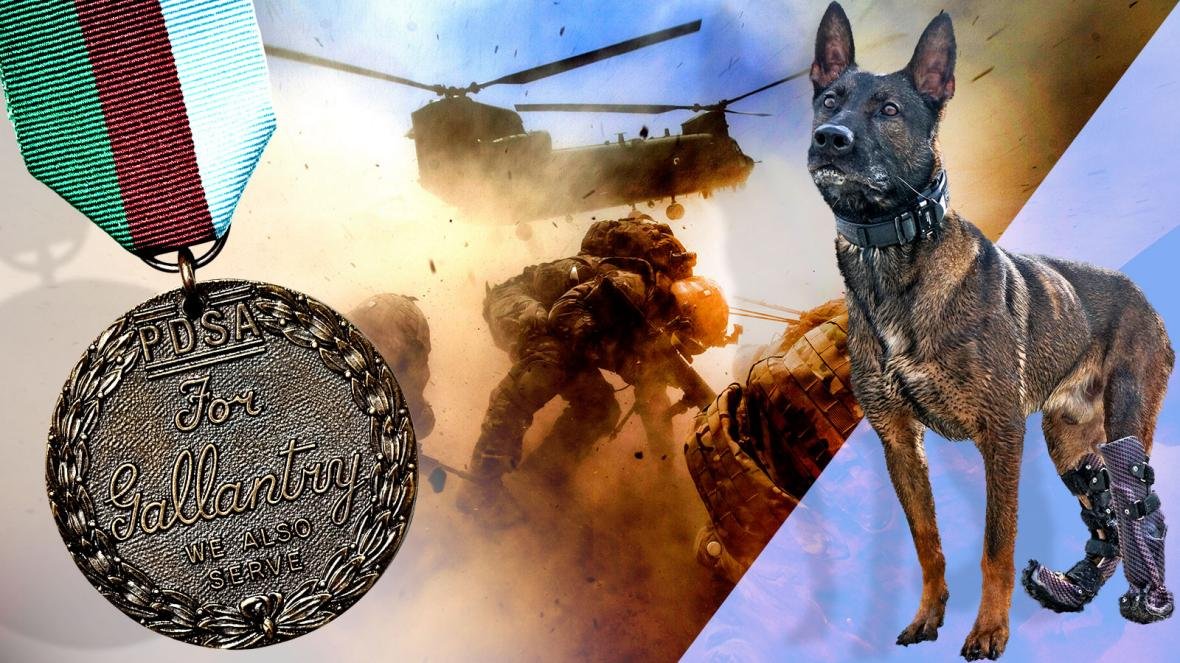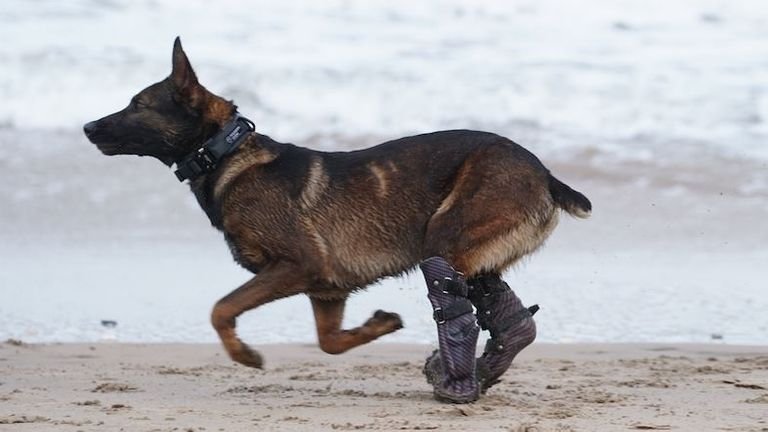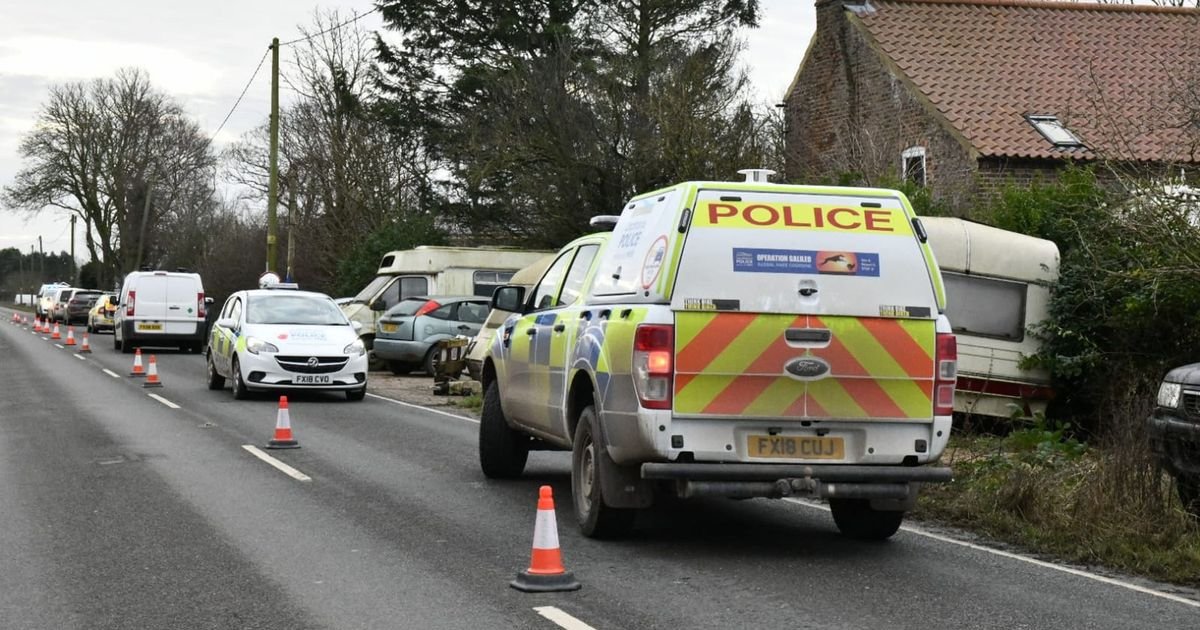Heroes or unwitting participants.
Kuno, a British military dog, has recently joined a long list of those that have been injured or killed in action in the line of duty and was awarded a PDSA Dickens medal for bravery as a “hero“.
Kuno, a young 3 year old Belgian Malinois, took part in a military operation in Afghanistan in 2019 and was seriously injured when helping his comrades who were pinned down from machine gun and grenade fire. He was sent in under a hail of bullets wearing night vision goggles to attack the al-Qaeda extremists.
It sounds like a storyline from one of the animated movies we are all so fond of where the heroes are animals doing great deeds, particularly the part of wearing night vision goggles. Unfortunately, this was real life and our hero was shot and suffered a multitude of injuries resulting in part amputation of his back legs. He now has the accolade of being the first UK military working dog to be fitted with custom prosthetic limbs and must contend with these injuries for the rest of his life.
“The great care the UK armed forces provide to animals”
The UK Defence Secretary stated that Kuno had changed the course of the mission by saving British soldiers lives but also added that the story showed “the great care that the UK armed forces provide to the animals that serve alongside them.” But it seems rather illogical to view sending a dog through a hail of bullets as providing great care of them.

Is it a betrayal of the trust they obviously form with their handlers to send dogs like Kuno to their deaths.
Surely to be a hero you need to have a fair idea of what you are doing at the time. Dogs have many attributes but understanding the dangers of charging into machine gun fire is not one of them. When we describe and fete them as heroes we are obviously humanising them and giving them the ability to process and acknowledge the risks and dangers they are getting themselves into, but this is against scientific doctrine and understanding.
Dogs will always try to cope with anything we demand of them and mostly treat everything as a game, so following a command regardless of its intentions is an act of trust and faith on their part and perhaps a betrayal of this trust on ours.
Are we doing them an injustice by giving them medals?
It is unclear what charities like the PDSA are trying to achieve by giving them medals unless it is to alleviate some of our guilt of putting them at risk in the first place. Although it is a poignant gesture, particularly when it is posthumous, and expresses our animal loving instincts the dogs possibly deserve better from us instead.
I have not thank god been in such a situation as Kuno and his comrades found themselves but I hope there was great heart searching when making the decision to sacrifice Kuno’s well-being to save their own. The story illustrates that these dogs are merely extra weaponry or ‘kit’ and are expendable in these situations and any consideration of their rights or welfare is not viable. But can we seriously call these dogs genuine heroes and glorify these enforced acts of so called bravery, when they have not ‘volunteered’ their services and are obviously unaware of what they are doing. At best they are just unwitting ones.

